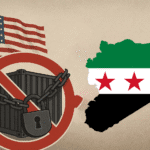On May 12, 2025, a group of 49 white South African Afrikaners arrived in the United States under a new refugee resettlement program initiated by President Donald Trump. The program, established through a February executive order, offers expedited asylum to white South Africans, particularly Afrikaners, citing alleged racial persecution and economic hardship in their home country.
The refugees were greeted at Washington Dulles International Airport by U.S. officials and are set to be resettled in various states, including Minnesota, Idaho, and Nevada. The Trump administration has emphasized that the program aims to protect individuals facing “race-based persecution,” referencing concerns over South Africa’s land reform policies and affirmative action measures.
President Trump’s decision has sparked significant controversy. Critics argue that the policy disproportionately favors a relatively affluent and historically privileged group, while the administration simultaneously restricts refugee admissions from other regions experiencing severe humanitarian crises, such as Sudan and Afghanistan. Human rights organizations and South African officials have challenged the narrative of targeted persecution against white South Africans, noting that while crime affects all communities, there is no evidence of a systematic campaign against Afrikaners.
The South African government has expressed strong opposition to the U.S. policy. President Cyril Ramaphosa’s administration contends that the land reform initiatives are designed to address historical injustices and are not racially motivated. Officials have also criticized the U.S. for suspending aid to South Africa and for what they describe as a misrepresentation of the country’s domestic policies.
Despite the controversy, the Trump administration plans to expand the resettlement program in the coming months. According to the U.S. Embassy in South Africa, nearly 70,000 individuals have expressed interest in applying for refugee status under the new policy. However, many Afrikaners have declined the offer, expressing a commitment to remain in South Africa and contribute to its future. As the debate continues, the arrival of these families marks a significant development in U.S. immigration policy and its intersection with international relations and domestic politics.















